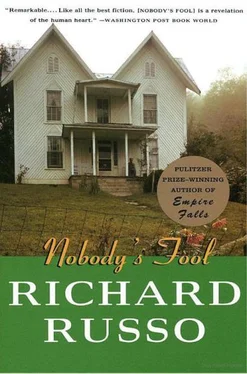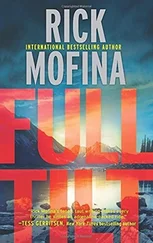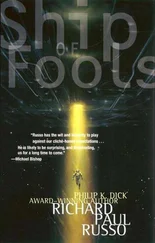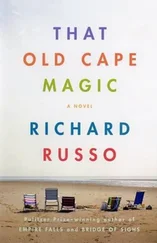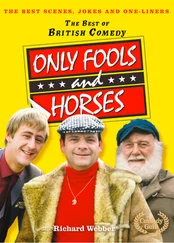Sully sat on one of the radiators and flexed his knee.
“What the hell’s the matter with you today?” Wirf wanted to know. “I get you out of jail, and you act like somebody died.”
It was true. An hour or so ago, sitting alone in the drab coffee room at City Hall, before he even knew for sure that he was going to be released, that the assault charges would be dropped, he’d felt his spirits soar. There were indications that his stupid streak had run its tortured course, that luck was back on his side. He still felt this to be true. Why then the sudden sense that this shift of fortune wouldn’t mean much? That all the luck in the world might not be enough? Probably he was just feeling a little overwhelmed. Jail had been an odd, unexpected release from anxiety and expectation. If he wasn’t making any progress toward resolving his various financial and personal headaches, neither was he making them worse, and nobody could justifiably expect much of him, at least until he got out again. Now that he was a free man, he saw that he had a mountain to move. There was the truck to pay for and Miles Anderson’s house to transform. He owed Harold Proxmire and Wirf, and in order to pay them he was going to have to work, and in order to work he was going to have to make things up with Rub. Most of this, with effort, could be done. There was still the outside possibility of selling the Bowdon Street property, though he knew he was very near the end of the so-called redemption period.
Even more disturbing was that Sully could trace his plummeting spirits to the precise moment when he looked up and saw his son and grandson standing in the doorway of the lounge area of City Hall moments after Officer Raymer’s demolition of the coffee machine. Every time he laid eyes on Peter he felt in the pit of his stomach the vague, monstrous debt a man owes, a debt more difficult to make good on than money you don’t have. A grandson simply extended the debt, let you know that you still owed it, that the interest is compounded. The more he thought about what he owed Peter, the more he despaired of identifying the debt, even as the need to give his son something became more real and urgent. His having thoughtlessly bought his grandson a Coke at eleven in the morning had stayed with him, as had Peter’s observation that whatever Sully had to give, you could be sure that this was not what was needed at the moment.
To make matters worse, Peter seemed intent on enlarging the debt. He’d turned out to be a first-rate worker, managing to keep Sully’s various irons in their various fires while Sully himself was out of commission. True, every job Peter did he managed to convey, without exactly saying so, that he was doing it under protest, but he did get things done and he did them more quickly and efficiently than Sully could have managed. Peter, Sully had to admit, was part of the reason his luck had changed. If he was able to climb out of the hole he was in, it would be largely due to his son, while Sully seemed largely incompetent to help Peter with his own myriad difficulties — a suddenly disintegrating marriage, the loss of not only his job but his profession, his hopes for a solvent future. And by allowing Peter to help him out, he was putting himself at odds with Vera, who was counseling their son to look for a new job teaching college, steer clear of that wreck waiting to happen that was Don Sullivan. And who could blame her?
More to the point, Sully wasn’t sure his pride would allow Peter — the son whose existence he’d often allowed himself to forget for many months at a stretch — to be his savior. It might have been different, maybe, if he were more fond of the man his son had become. There were times when he thought he could learn to be fond of him, and other times when it seemed he already did love his son. But it wasn’t the kind of constant affection he felt for Wirf and Ruth and Miss Beryl and even Rub. It wasn’t even as powerful as the affection mixed with aggravation that he felt toward Carl Roebuck. Strangely, it was closer to his feeling for Carl’s wife, Toby, a feeling he couldn’t articulate that resided in the pit of his stomach and made him feel foolish, warning him away — perhaps for the same reason, the deep-down knowledge that these were things he couldn’t have, that would not be granted him, a beautiful young woman he had no right to expect, a son he didn’t deserve. It didn’t bother him much that Peter seemed unable to surrender his grudges. Grudges were understandable enough. Sully had no intention of surrendering his far more numerous grudges against his own father, and so he didn’t expect Peter to forgive. What did he expect, then?
Possibly, he just wished Peter were a little more like himself. True, he was a hard worker, and, Sully had to admit, a more talented worker as well, slower to become impatient, quicker to understand, more steady of temperament. What negated so many of these qualities was his son’s apparent expectation that hard work would be rewarded, a childish attitude that Vera had instilled in him. Because he’d worked hard in school and made good grades, he expected a good job and good pay and security. Because he’d been a competent teacher, he apparently expected promotions and respect. When these hadn’t followed, he’d felt self-pity, another of his mother’s gifts. Moral outrage and self-pity had always been Vera’s strong suits.
As contemptuous as Sully felt toward his own father, at least the two had always conceded, though the concession was unspoken, that Sully was Big Jim’s son, that the apple hadn’t fallen so very far from the tree. The old man understood and accepted his son’s contempt, realizing too its measure of self-loathing. During the last twenty years of Big Jim’s life, Sully hadn’t even seen him more than half a dozen times, but on each of those occasions something had taken place between them that Sully couldn’t deny. He’d catch the old man looking at him as if to say, “I know you, buddy boy, know you better than you know your own self.” And Sully would always have to look away from the smirk that followed, away from the truth it contained. Maybe that’s what Sully wanted from Peter, a firmer sense that the boy was his son, that the apple hadn’t fallen so far from the tree. Except for rare moments, like the night he’d gone to jail and he and Peter and Wirf had spent the evening drinking at The Horse, it seemed to him that the apple had rolled all the way down the hill and into the next county, which made it hard for Sully to feel much more affection for Peter than he did for the ex-wife, who’d made him, single-handedly.
From where Sully was seated on the radiator, he could hear Peter talking quietly to Will in one of the two bedrooms, their voices echoing in the hollowness, the words not quite audible. It was one of the things that irritated Sully most, he realized, that his son always spoke to Will in whispers, as if Sully were not to be trusted with the contents of even the most casual conversations, or as if he hadn’t earned the right to share them. Wirf was also listening to the low murmur of voices and seemed to understand some of what Sully was feeling. “Black thoughts,” he grinned. “You’re full of black thoughts today.”
There didn’t seem to be any point in denying this, so Sully didn’t.
“Well,” Peter said, when he and the boy rejoined them. “You going to take it?”
“My lawyer thinks I should,” Sully said.
“Which means he won’t,” Wirf said. “He’s never taken my advice yet.”
“If you don’t take it, I will,” Peter offered.
Sully took this in, part of him pleased. “Good,” he said, wondering if this gesture would ease his need to give his son something. “Take it. It’d work better for you anyhow.”
Читать дальше
